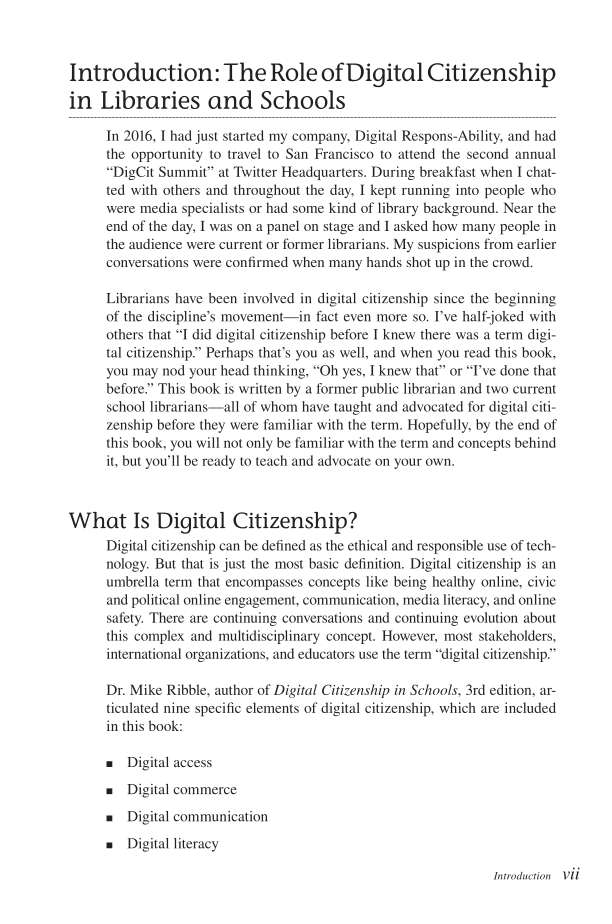Introduction vii Introduction: The Role of Digital Citizenship in Libraries and Schools In 2016, I had just started my company, Digital Respons-Ability, and had the opportunity to travel to San Francisco to attend the second annual “DigCit Summit” at Twitter Headquarters. During breakfast when I chat- ted with others and throughout the day, I kept running into people who were media specialists or had some kind of library background. Near the end of the day, I was on a panel on stage and I asked how many people in the audience were current or former librarians. My suspicions from earlier conversations were confirmed when many hands shot up in the crowd. Librarians have been involved in digital citizenship since the beginning of the discipline’s movement—in fact even more so. I’ve half-joked with others that “I did digital citizenship before I knew there was a term digi- tal citizenship.” Perhaps that’s you as well, and when you read this book, you may nod your head thinking, “Oh yes, I knew that” or “I’ve done that before.” This book is written by a former public librarian and two current school librarians—all of whom have taught and advocated for digital citi- zenship before they were familiar with the term. Hopefully, by the end of this book, you will not only be familiar with the term and concepts behind it, but you’ll be ready to teach and advocate on your own. What Is Digital Citizenship? Digital citizenship can be defined as the ethical and responsible use of tech- nology. But that is just the most basic definition. Digital citizenship is an umbrella term that encompasses concepts like being healthy online, civic and political online engagement, communication, media literacy, and online safety. There are continuing conversations and continuing evolution about this complex and multidisciplinary concept. However, most stakeholders, international organizations, and educators use the term “digital citizenship.” Dr. Mike Ribble, author of Digital Citizenship in Schools, 3rd edition, ar- ticulated nine specific elements of digital citizenship, which are included in this book: ■ Digital access ■ Digital commerce ■ Digital communication ■ Digital literacy
Document Details My Account Print multiple pages
Print
You have printed 0 times in the last 24 hours.
Your print count will reset on at .
You may print 0 more time(s) before then.
You may print a maximum of 0 pages at a time.

































































































































































































